
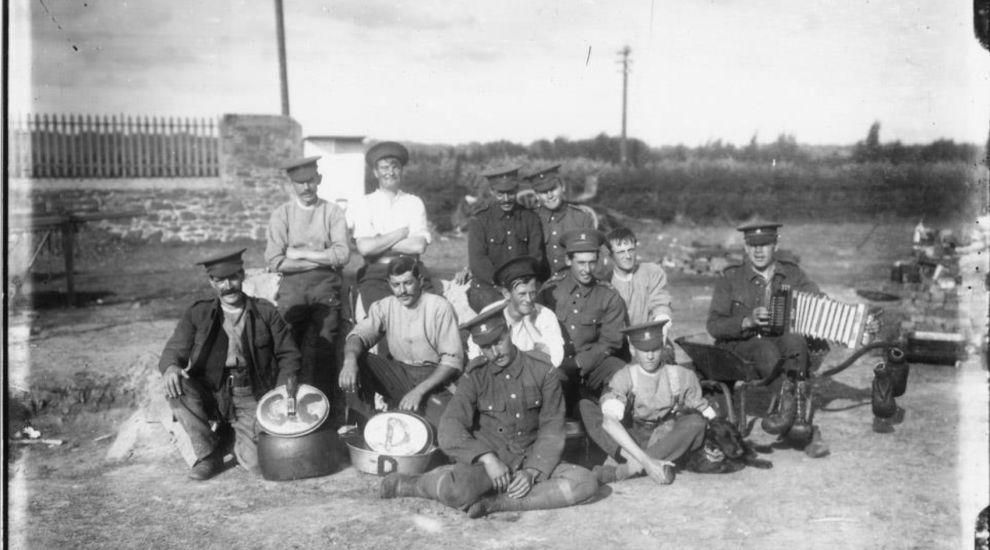

The Army’s Sergeant-Majors are renowned for their discipline and keeping their troops in order... But a group of St Ouennais militiamen decided enough was enough just over 110 years ago, rebelling against their senior officer and causing mutiny in a military training camp.
The eight-day training camp of the West Battalion of the Royal Militia of the Island of Jersey was held at Les Quennevais in July 1911.
The Evening Post had covered the exercises that had taken place and said it had been “most successful”.
This all came crashing down before the end of the camp.
In an article entitled ‘Mutinous Militiamen in Camp’, the newspaper recounted how on the evening of the 28 and morning of the 29, the camp was “marked by disorderly scenes, which to many will be strongly reminiscent of the memorable outbreak on St Aubin’s Sands many years ago, when the men of the West Battalion mutinied, because they were not allowed to take precedence in the march-past on Grand Review day”.
The object of their ire on this occasion was Sergeant-Major A H Alldridge. Alldridge had previously been Colour-Sergeant-Instructor of Musketry and a popular figure. He had been promoted to Sergeant-Major earlier in the year and this view had changed.
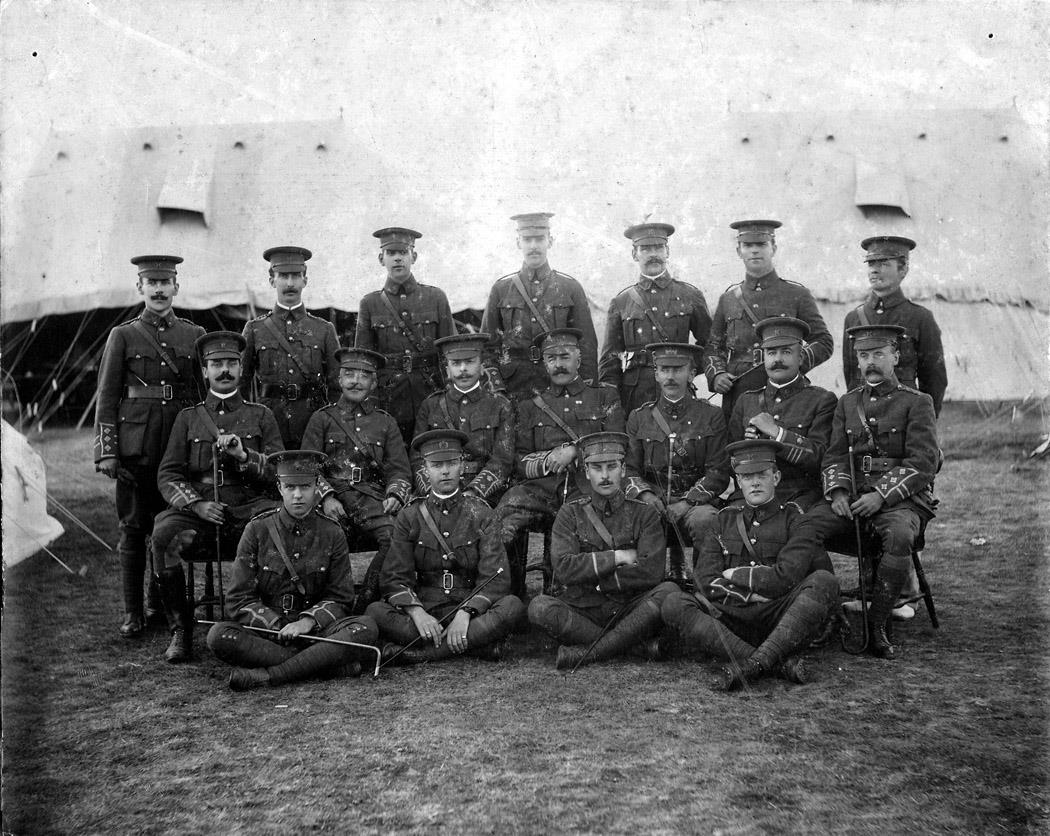
Pictured: Colonel Sumner with his staff at Les Quennevais camp in 1908 (Société Jersiaise).
The men claimed that since his promotion, Alldridge “has exercised his authority in a manner which had proved very distasteful to them, and according to some of them, he took advantage of his promotion to annoy them in various ways”.
It was particularly the men of the A Company of St Ouen’s who were said to have a grievance against him.
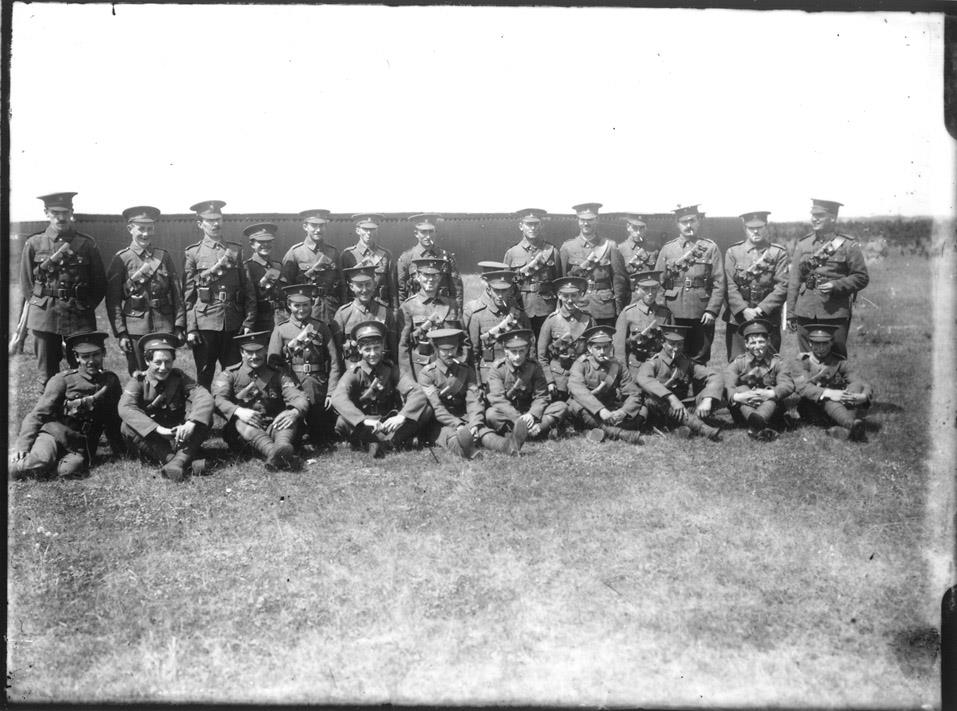
Pictured: Militia Camp at Les Quennevais in 1913 or 1914 (Société Jersiaise).
One of them claimed they did not like being treated “in the same way as regulars”. They vowed to take matters into their own hands before the camp broke up.
Just before midnight, a group of soldiers – practically the whole of A Company – made their way to Alldridge’s tent and surrounded it. They declared their intention to untie the ropes and let the tent collapse on the Sergeant-Major.
Officers were called to try and calm the situation. They attempted to persuade the men to disperse but, as the newspaper stated, “the St Ouenais, if slow to make up their minds, are not easily turned once they have come to a decision, and for a long while matters looked very serious indeed”. Some men even threatened to stack bundles of furze around the tent and to set them alight.
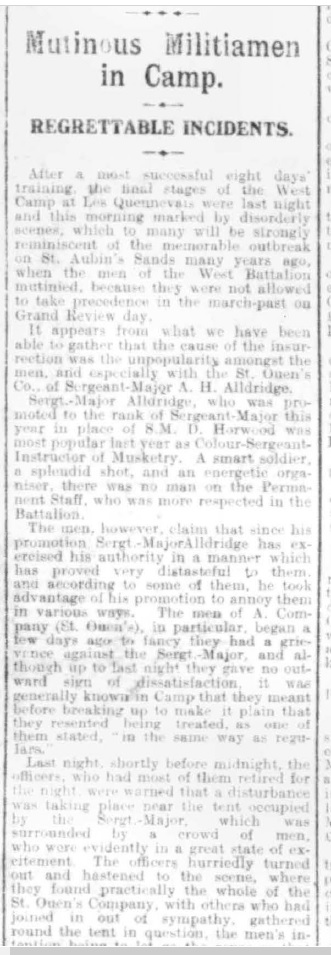
Pictured: Mutiny at Les Quennevais, Evening Post report 1911. (Jersey Heritage)
The men finally returned to their quarters at 2am. However, this was not the end of the affair. The following morning, they once more gathered around the tent of the Sergeant-Major. Colonel Sumner, the Commanding Officer, was called to the spot. He and his officers listened to the men’s complaints before restoring order.
Sergeant-Major Alldridge left the camp shortly after in order to try and calm matters. The Evening Post declared: “The whole affair is undoubtedly regrettable, but it only proves again, if proof were needed, that the Jerseyman cannot be handled quite in the same way as a regular.”
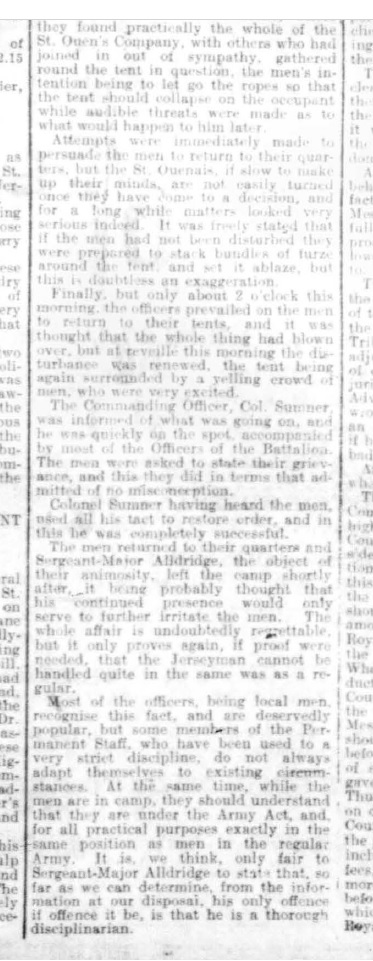
Pictured: Mutiny at Les Quennevais, Evening Post report 1911. (Jersey Heritage)
At the same time, the newspaper acknowledged that when the men were in camp, they were governed by the Army Act, and so for all practical purposes were in the same position as men in the regular Army.
The report finished by saying that Sergeant-Major Alldridge’s “only offence if offence it be, is that he is a thorough disciplinarian”. This was something that the men from St Ouen obviously did not appreciate.
Whether the incident had any impact on his decision is uncertain, but Alldridge was discharged from the Army the following April at the age of 39.
This story was told as part of a series in collaboration with Jersey Heritage.
To uncover more stories like this, visit Jersey Archive or search its online catalogue HERE.
Pictured top: A group of men at a militia camp in the early 20th century. (Société Jersiaise)
Comments
Comments on this story express the views of the commentator only, not Bailiwick Publishing. We are unable to guarantee the accuracy of any of those comments.